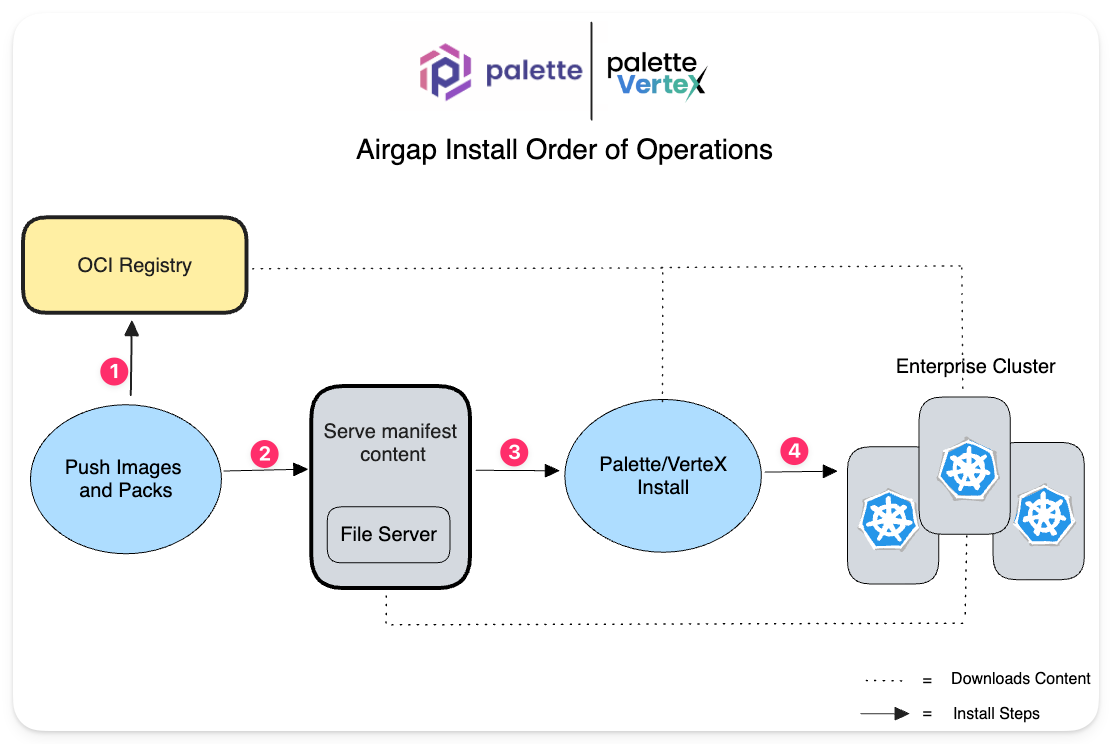Airgap
You can install Palette in an airgapped environment. An airgap environment lacks direct access to the internet and is intended for environments with strict security requirements.
The installation process for an airgap environment is different due to the lack of internet access. Before the primary Palette installation steps, you must download the following artifacts.
- Palette platform manifests and required platform packages.
- Container images for core platform components and third-party dependencies.
- Palette packs.
The other significant change is that Palette's default public OCI registry is not used. Instead, a private OCI registry is utilized for storing images and packs.
Overview
Before you can install Palette in an airgap environment, you must complete all the required pre-install steps. The following diagram outlines the major pre-install steps for an airgap installation.

Download the airgap setup binary from the support team. The airgap setup binary is a self-extracting archive that contains the Palette platform manifests, images, and required packs. The airgap setup binary is a one-time use binary for uploading Palette images and packs to your OCI registry. You will not use the airgap setup binary again after the initial installation.
Extract the manifest content from the airgap setup binary. The manifest content is hosted on a file server.
Install Palette using the Palette CLI. The Palette CLI is used to install Palette into your vSphere environment.
Configure your Palette environment.
Get Started
To get started with an airgap Palette installation, check out the respective platform guide.
Each platform guide provides detailed instructions on how to complete the pre-install steps. We also recommend you review the Checklist to ensure you have completed all the required steps before deploying the airgap Palette installation.
Supported Platforms
| Platform | OCI Registry | Supported |
|---|---|---|
| Kubernetes | Harbor | ✅ |
| Kubernetes | AWS ECR | ✅ |
| VMware vSphere | Harbor | ✅ |
| VMware vSphere | AWS ECR | ✅ |